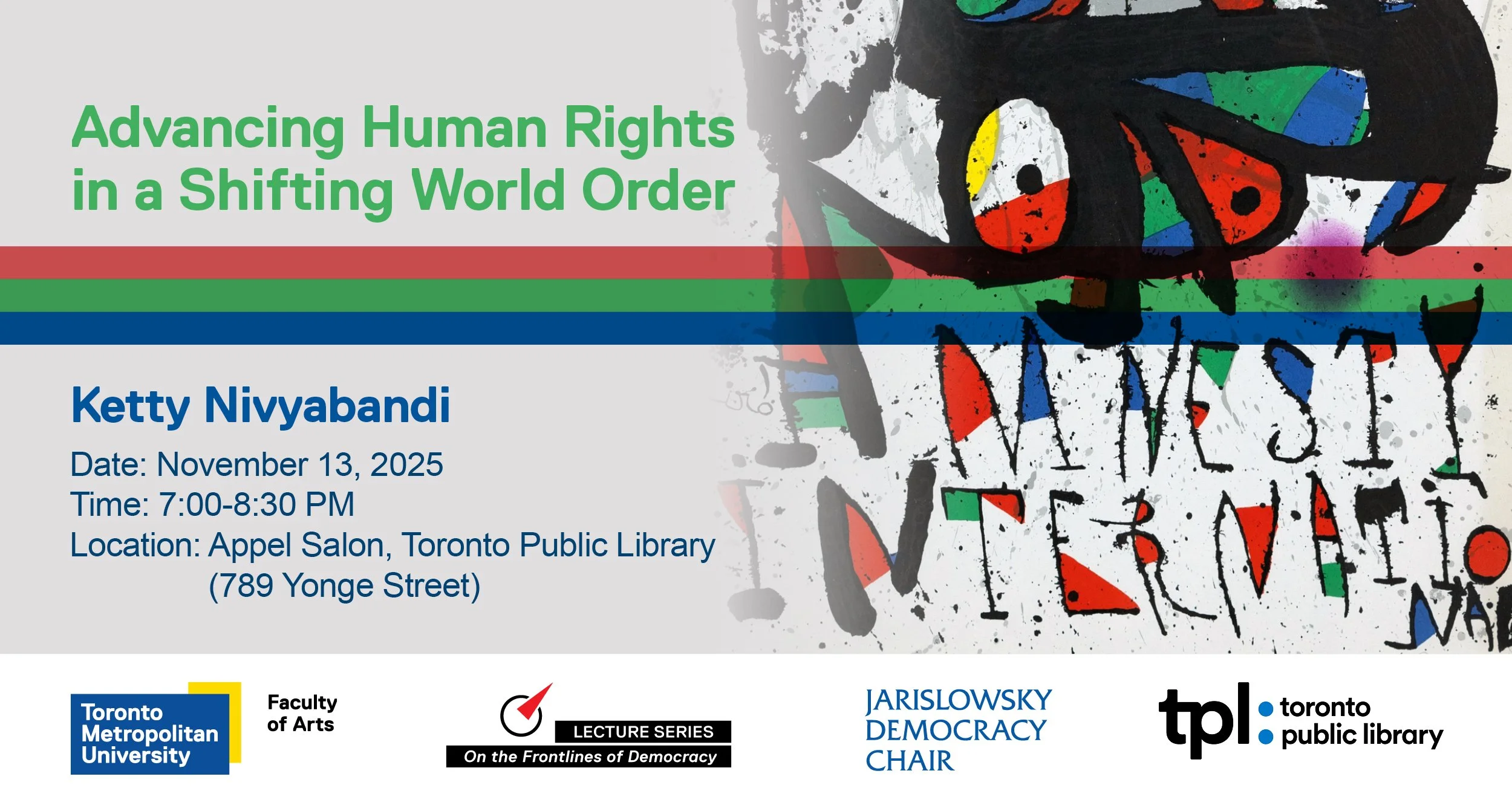Advancing Human Rights in a Shifting World Order
Across continents, we are witnessing a serious retreat from democratic norms. Authoritarian leaders consolidate power while established democracies grapple with social polarization and institutional strain. Meanwhile, geopolitical tensions, from Ukraine to the South China Sea, reshape international cooperation and complicate efforts to protect vulnerable populations. This convergence of democratic backsliding and rising conflict creates a perfect storm threatening decades of human rights progress.
How do we safeguard human rights when the very systems designed to protect them are under assault? What strategies can advocates employ when traditional diplomatic channels are strained by great power rivalry? How can grassroots movements maintain momentum amid repression while building international solidarity across increasingly divided nations? What role can civil society play in bridging gaps that governments cannot or will not address?
Drawing from her experience as an exile from Burundi's political turmoil and her work with marginalized communities worldwide, Amnesty Canada’s Secretary General Ketty Nivyabandi offers crucial insights into sustaining hope and effectiveness in humanity's darkest moments. In conversation with Sanjay Ruparelia.
About the speaker:
Ketty Nivyabandi serves as Secretary General for Amnesty International Canada’s English-Speaking section. She oversees the domestic and international human rights mandate of the organisation and acts as its lead representative. A global human rights activist and advocate, Ketty holds in-depth expertise and lived experience in forced displacement, human rights defenders at risk, civic space in conflict and political transitions, and the global intersections of gender, race, and human rights. Prior to seeking asylum in Canada in 2015, she braved police violence as the lead organizer of women’s peaceful protests for democratic change in her country, Burundi. In her previous roles at the Nobel Women’s Initiative, Women’s Movement for Peace and Security and US State Department, Ketty has led research, advocacy, and communications strategies with women peace activists in several conflict and post conflict countries, including Syria, Yemen, South Sudan, Myanmar, Uganda, and Guatemala. Her work is rooted in people power, public accountability, and a feminist, decolonial approach to human rights. Ketty studied International Relations, is a former journalist, and published poet. She lives in Ottawa with her two teenage daughters. Follow her on X.
About the discussant:
Sanjay Ruparelia is Professor of Politics and Public Administration at Toronto Metropolitan University, where he holds the Jarislowsky Democracy Chair, and a Senior Fellow of the Asia Pacific Foundation of Canada. His main publications include Divided We Govern: Coalition Politics in Modern India; The Indian Ideology, and Understanding India’s New Political Economy. His research has been supported by grants and fellowships from the Commonwealth Foundation, American Council of Learned Societies and Social Science and Humanities Research Council as well as Cambridge, Johns Hopkins, New School, Notre Dame, Princeton, Stellenbosch and Yale. Sanjay serves as a co-chair of Participedia, which studies democratic innovations globally, and on the editorial boards of Indian Politics and Policy and Pacific Affairs. He hosts On the Frontlines of Democracy, a monthly podcast and lecture series, and regularly contributes to media in Asia and North America, including the CBC, CTV, Channel News Asia, Globe and Mail, Hill Times, Hindustan Times, Indian Express, New York Times, The Hindu, The Walrus, Toronto Star and Washington Post. Sanjay previously taught at the New School for Social Research and Columbia University. He earned a B.A. in Political Science from McGill University, and a M.Phil in Sociology and Politics of Development and Ph.D. in Politics from the University of Cambridge.
About the series:
On the Frontlines of Democracy is a public lecture series to analyze the prospects of democracy in our world. In every region, democracies face serious challenges, old and new. Can we protect our constitutional democracies in an era of popular mistrust, severe partisanship and resurgent nationalism? Can they reduce inequalities of power, wealth and status, defend deep diversity and confront climate change in the new digital age? Can we develop innovative strategies to revitalize civic engagement and empower public institutions to renew the promise of collective self-rule? And what can Canada offer and learn to promote the prospects of democracy in a shifting world order?

